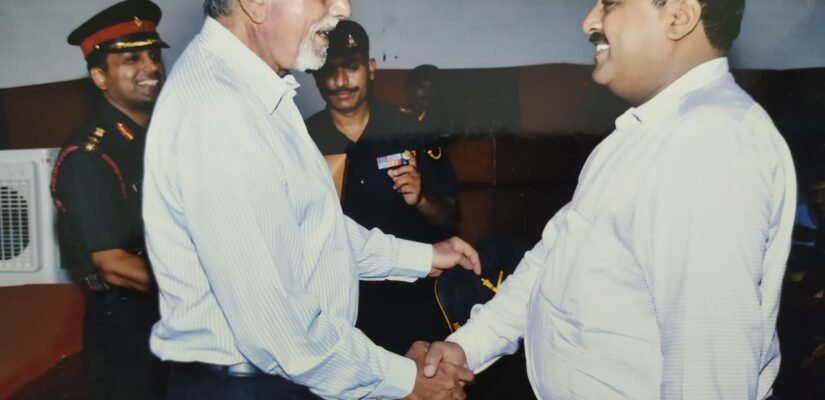
There is no threat to Kashmir from Pakistan NAAD Jul 2021
There is no threat to Kashmir from Pakistan NAAD Jul 2021
In 1978, post the arrest and trial of Zulfikar Ali Bhutto, Zia-ul-Haq assumed charge of Pakistan, and launched his policy of bleeding India with a thousand cuts. Four and a half decades later, the policy has, apart from backfiring, placed Pakistan in a quandary. Nothing has been achieved, rather more has been lost. India has galloped ahead economically, diplomatically and militarily, while Pak has sunk deeper and deeper into the abyss of debt, internal dissension, radicalization and poverty.
Pakistan’s intent of causing turmoil in Kashmir did prove successful initially, however, with passage of time, the scenario reversed. Currently, Pakistan’s Kashmir policy is in tatters. Its carefully nurtured Hurriyat has fallen by the wayside, with none willing to support it. Its belief in India maintaining status quo was pushed aside when article 370 vanished from history books, never to return again. Attempts at supporting infiltration through ceasefire violations were met with overwhelming response, smashing Pak defences, resulting in mass casualties to its forces. Pakistan was forced to seek a ceasefire.
Kargil proved that India will not relent. Its regaining the heights forced Pak to approach the US for a ceasefire. The Balakote and cross-border strikes changed Indian approach to Pak’s misadventures. The ongoing Ladakh embroil-go further proved that India has the strength and determination to deny any power a free run and it is no pushover.
The confidence within Indian security forces is such that it has changed its strategies. It has begun seeking surrenders and emphasizing on preventing youth from picking the gun, rather than eliminating them. Simultaneously, focus has shifted to breaking the nexus of overground workers, the leading elements behind recruitment of terrorists. Enhanced engagement with the younger generation has built confidence amongst the public. Kashmir is rising again, this time peacefully, welcoming the rushing tourists.
On the contrary, Pakistan’s western provinces are currently on the boil with both the Tehreek-e-Taliban Pakistan (TTP) and Baluch freedom fighters gaining steam and confidence. Hardly a day goes without loss of lives to Pak forces. Simultaneously, the Pashtun anger is rising as their demands for removal of the Taliban and an end to enforced disappearances and extra judicial killings are not being accepted. Afghanistan appears to be heading for civil war and possibly coming again under Taliban rule, pushing millions more as refugees into Pakistan.
Internally, radicalization, the route adopted by Zia, to raise militants to fight the Soviet invasion of Afghanistan and participate in the battle of Kashmir has damaged Pak society. The clerics have gained immense power and are a force against the state. The recent action of the government banning the TLP is a case in point. Blasphemy laws, which are exploited to settle personal vendetta and target minorities, has become the stick which the western world employs to beat Pakistan.
While Pak sinks deeper into the sink hole, Kashmir rises above the clouds. It is no longer a region where outsiders fear to tread. Tourism is on the rise, peace prevails across most of the region, political initiatives continue at a steady pace and the uncertainty post abrogation of article 370 has eroded. The recent meeting of the PM with all political parties opened doors for cooperation on the delimitation exercise, the start of the political process.
It is this change from negative to positive in Kashmir and positive to negative along Pakistan’s western borders which has impacted the Pak leadership. They have realized that there is nothing they can do to threaten India militarily. They hid their casualties from the Balakote strike, it may not happen again. Threatening Kashmir by military means is not the answer as they lack capabilities. It tried terrorism but without an army of overground workers it cannot succeed. Diplomatically, Pakistan has failed. Apart from China and Turkey, it has zero support.
The world has seen through Pakistan’s lies and deceit. It’s attempts to bulldoze its way out of the FATF Grey List by claiming it has implemented almost all points was disregarded. Its failure to act against UN proscribed terrorist groups and leaders was noted and it will continue to pay this price. The bomb blast in Johar Town, Lahore targeted Hafiz Saeed, who was in his residence, while supposedly undergoing a jail term in Lahore’s Kot Lakhpat Jail. The blast occurred while the FATF plenary was in progress, making public another fake claim of Pakistan, that it acted against terrorist group leaders. Its accusing India for backing the TTP, which its own army claims is a part of the Taliban has been globally ignored.
For India, Pakistan will remain a pinprick, which will keep spewing verbal venom at regular intervals. To make their population momentarily forget their suffering, shortages, unemployment and economic collapse, Pakistan will exploit the name of India. Its capacity to damage Kashmir society, bring about an internal uprising in the region, and add to Indian problems are history. There will still be incidents of terrorism, spread across the region, intended to display that Kashmir remains a disputed territory. Beyond that Pakistan can do nothing. This is the situation as long as Indian military power remains notches above Pakistan. There is currently no threat to Kashmir from Pakistan.